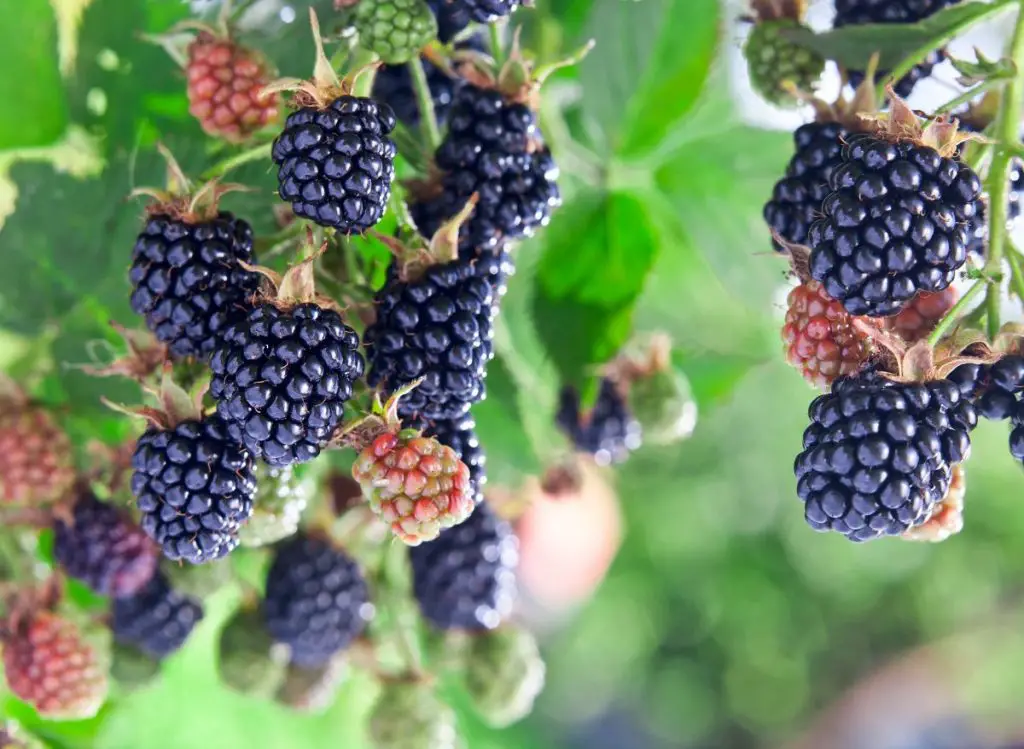
Having blackberry bushes overtake your garden can be very frustrating. Fortunately, there are natural ways to prevent blackberry from invading your space.
Planting plants that choke out blackberries is an excellent way to get rid of blackberry bushes. I suggest you consider any fast, climbing vine that could outcompete the blackberry bushes for optimal results. These plants will choke out blackberries by shading and eventually smothering them.
In addition, pruning blackberry bushes to the ground could also reduce their vigor. A combination of running cowpeas, winter squash, grapes, velvet beans, or some other annual legume will also increase your chance of success.
If you are looking for ideas on plants that could outcompete blackberries, prevent them, or reduce them from growing back, here is a list of plants that choke out blackberries.
If you are interested in exploring How To Properly Kill Blackberry Bushes Quickly, I encourage you to read this article.
Impacts Of blackberries Bushes:
- Blackberry, mainly the Himalayan blackberry, causes a lot of headaches to most gardeners because of its highly invasive growth.
- Blackberry also prevents the establishment of trees, including Pacific Madrone, Douglas Fir, and Western White Pine (Source: King County)
- Blackberry also restricts the movement of large animals with impassable thickets.
If you choose annual plants, try to replant the annuals around the edges densely, giving them a competitive advantage in moisture and fertility.
How Other Plants Coke Out Blackberry Bushes?
In nature, blackberries usually exist as the middle point in the transition of a meadow to a forest. And, blackberries outcompete grass and other herbaceous plants and will only be outcompeted by other plants that can grow above the blackberries and shade them out.
Furthermore, young trees can serve as nurse plants to help protect blackberries from deer and other herbivores because the sharp thorns act as nature’s deer fence.
I suggest you plant a few young trees among the blackberry canes that can grow over the top of the blackberry foliage, ultimately shading them out.
You might try planting several types of fast-growing trees with close spacing and dense shade, so they can completely block off the sunlight to the blackberries. This technique is very effective but will require a lot of patience as it takes time.
- Using pigs to dig up the roots or goats to continuously eat back the new growth as the roots resprout, ultimately draining the roots of their energy and killing the canes.
- Constantly mowing or weed-whacking the area could also work. To permanently get rid of blackberry bushes, you need to either continuously mow the blackberry bushes down until the energy in the roots is depleted or pull them up by the roots.
Some gardeners suggest trying kudzu; however, I suggest you try other plants first and see if they work. Use kudzu only as a last resort.
1- Oregano (Origanum Vulgare)
Oregano (Origanum) thrives under full sun and requires well-drained to dry soil with a neutral or alkaline pH. It also requires six or more hours of direct sunlight a day (Source: North Carolina State University)
Even though oregano is among the most effective plants that choke out blackberries, it doesn’t do well in acidic soils, poorly drained soils, and hot, humid conditions.
If you decide to use oregano to choke out blackberries, you can propagate them through seeds, cuttings, or division. A fresh layer of soil mixed with germinated oregano seeds should do well.
To help make the plant bushier and more compact, remove the stem tips leaving 4 to 6 pairs of leaves (Source: University of Illinois)
The good news is that Oregano is generally resistant to insects or diseases problems.
Some Oregano species to try include:
- Origanum dictamnus (Dittany of Crete)
- Origanum laevigatum (ornamental oregano ‘Herrenhausen’)
- Origanum vulgare (Oregano or Wild Marjoram)
- Origanum majorana (Sweet marjoram)
- Origanum x majoricum (Italian Oregano)
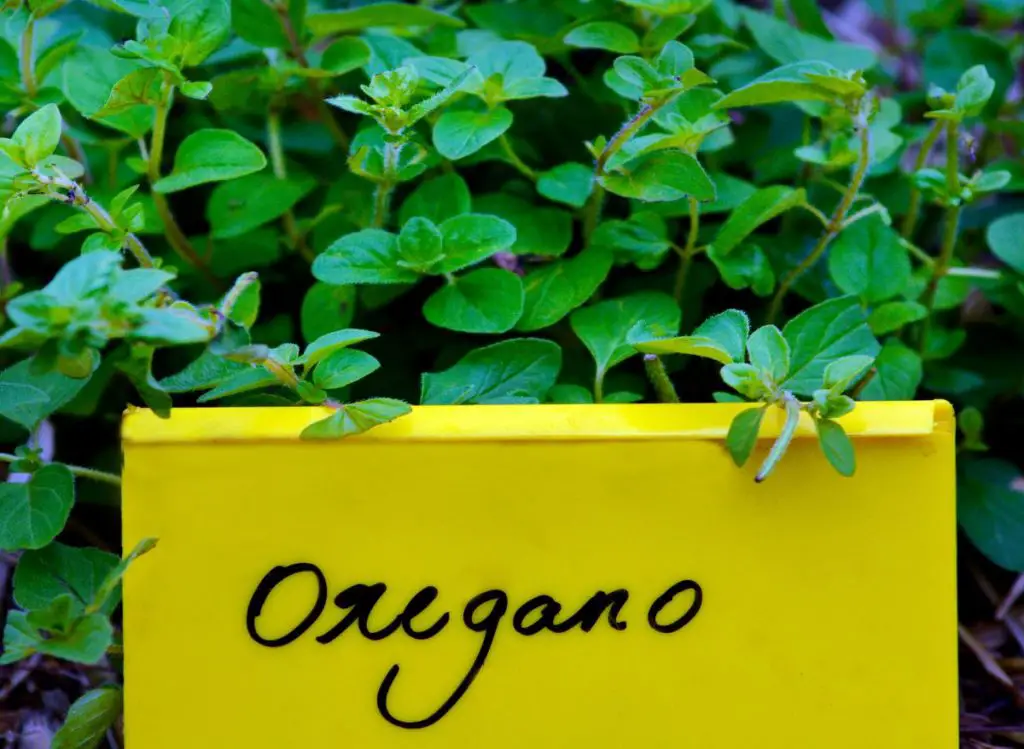
2- Nootka rose (Rosa Nutkana)
Nootka rose is also another plant that will choke out blackberries. Nootka Rose is deciduous, fast-growing, growing tall and reaching 6 inches (15.24 cm). It also grows well in both full sun and partial.
It typically flowers from May through July, depending on where you live. Most gardeners choose Nootka Rose because of its attractive pink blooms and red rose hips that survive in the winter.
Nootka Rose is a good choice for getting rid of blackberries because it is pest-free (Source: Washington State University)
Nootka rose produces extensive rhizomes and proliferates, making it an ideal plant for revegetation projects. In addition, you can use Nootka rose to control soil erosion on hillsides, road cuts, and stream banks.
Nootka rose is a thought plant that can tolerate low levels of fertility and will recover after a fire; however, multiple fires will seriously reduce a population (Source: United States Department of Agriculture (USDA))
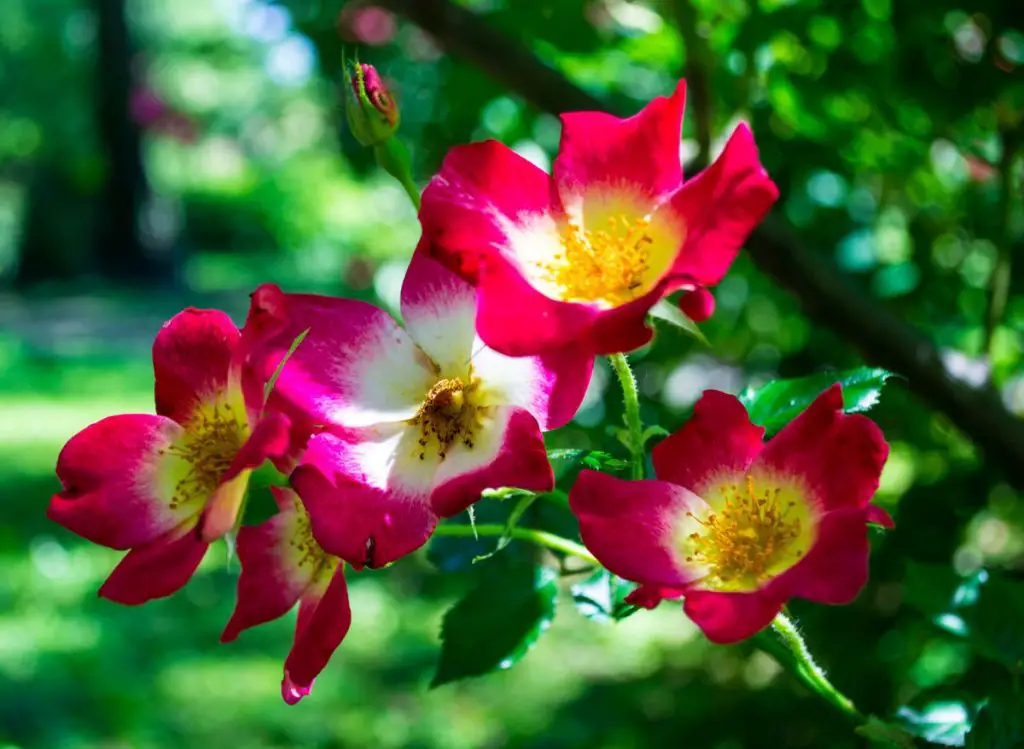
3- Salal Berries (Gaultheria Shallon)
Salal berries also compete well with blackberries, growing in similar conditions. If you like salal berries, I suggest you give them a try. Salal is an invasive species resistant to many herbicides because of its waxy foliage.
In addition, salal is an extremely thought plant. With its deep and wide root system, salal is one of the first plants to return after a forest fire (Source: Washington State University). More importantly, it is easy to grow as it can handle most soil types.
Salal can grow to 5 inches (12.7 cm) in height and spread to 5 inches (12.7 cm) in the shade. The plants may only get 1 to 3 inches (2.54 to 7.62 cm) tall in sunny spots.
See you also: Will Roundup Effectively Kill Blackberry Bushes? (Yes! and here’s how)
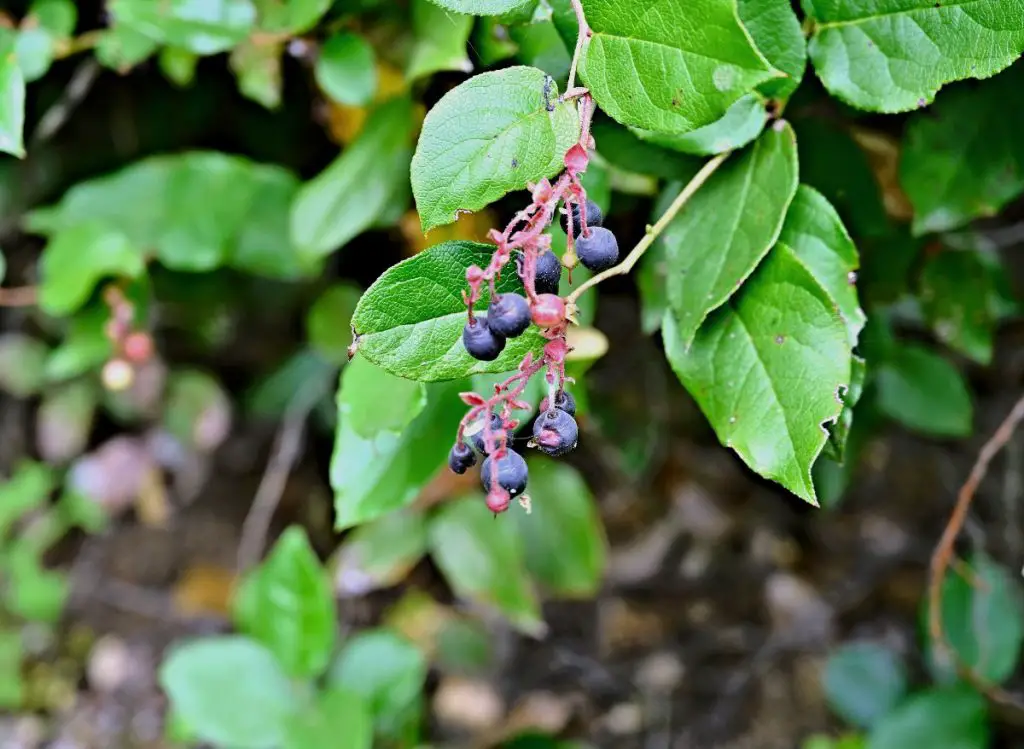
4- Cowpea (Vigna Unguiculata)
Cowpea (also called black-eyed pea or southern pea) is a “running” plant, which means it grows into a vine perfect for a garden trellis if you want to grow vertically.
Cowpea is a warm-season crop that can tolerate heat and dry conditions but is intolerant to frost. Cowpea thrives well on various soils and soil conditions but performs best on well-drained sandy loams or sandy soils where soil pH varies from 5.5 to 6.5 (Source: Purdue University)
Cowpea is known for its weed-smothering benefits as drilled or broadcast cowpea plantings quickly shade the soil to block weeds, making it an effective plant to choke out blackberries (Source: Midwest Cover Crop Council)
Grapes are excellent for eating, juicing, winemaking, and beautiful ornamental plants. Plant Grapevines in early spring after the date of the last hard freeze has passed.
Choose a site with full sun or a spot with morning sun and deep, well-drained, loose soil. It would be best if you also had good air circulation.
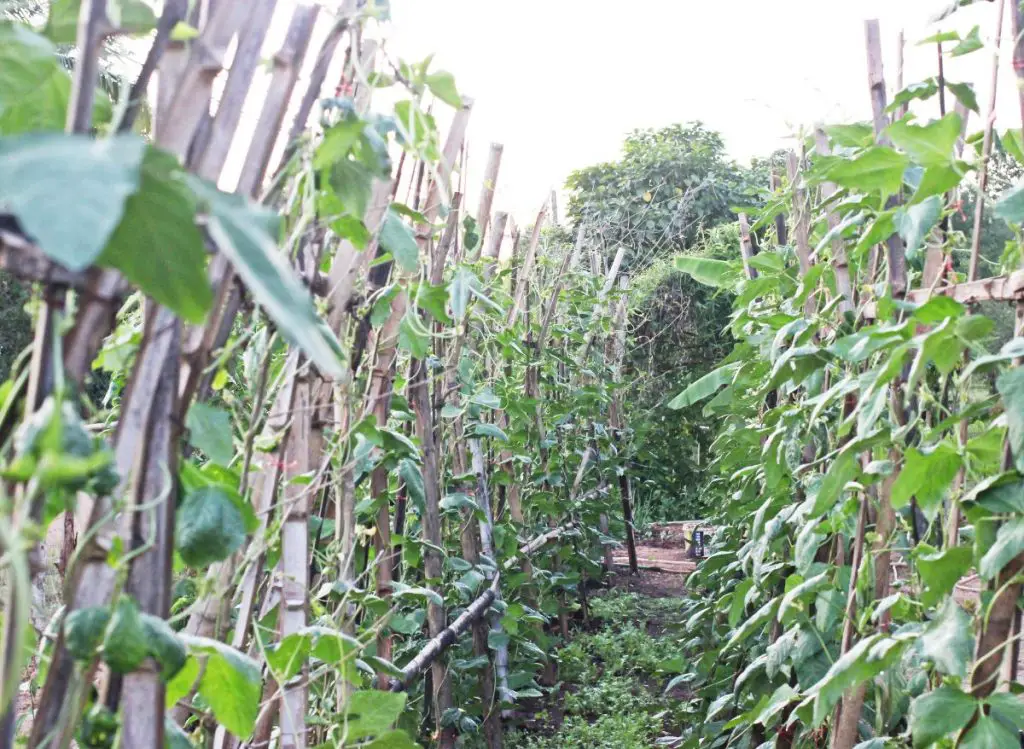
5- Grapes (Vitis Vinifera)
Grapes and blackberries typically require a lot of space to spread and grow; grapevines and blackberry bushes will compete for space and sunlight.
During their growing season, young grapes need about 1/2 to 1 inch (1.27 to 2.54 cm) of water weekly for the first two years, depending on the weather and rainfall.
In the fall, reduce watering young vines to encourage the plant to harden off its canes to prepare for winter. Older vines do not require frequent watering unless planted on sandy or well-drained soils (Source: University of Minnesota)
It might be a good idea to prune your grapevine less to encourage them to choke out blackberries. Remember to produce a lot of high-quality fruit; grapevine requires lots of sunlight, and a trellis or fence will help.
Home gardeners have three main types of grapes:
- American (Vitis labrusca) are cold-hardy
- European (V. vinifera) are usually better for wine.
- French-American hybrids are cold-hardy and disease-resistant but are not as flavorful as European grapes.
- Muscadine (V. rotundifolia) is native to the southern United States. Its thick skin makes it best suited for use in jams, wine, or other grape products.
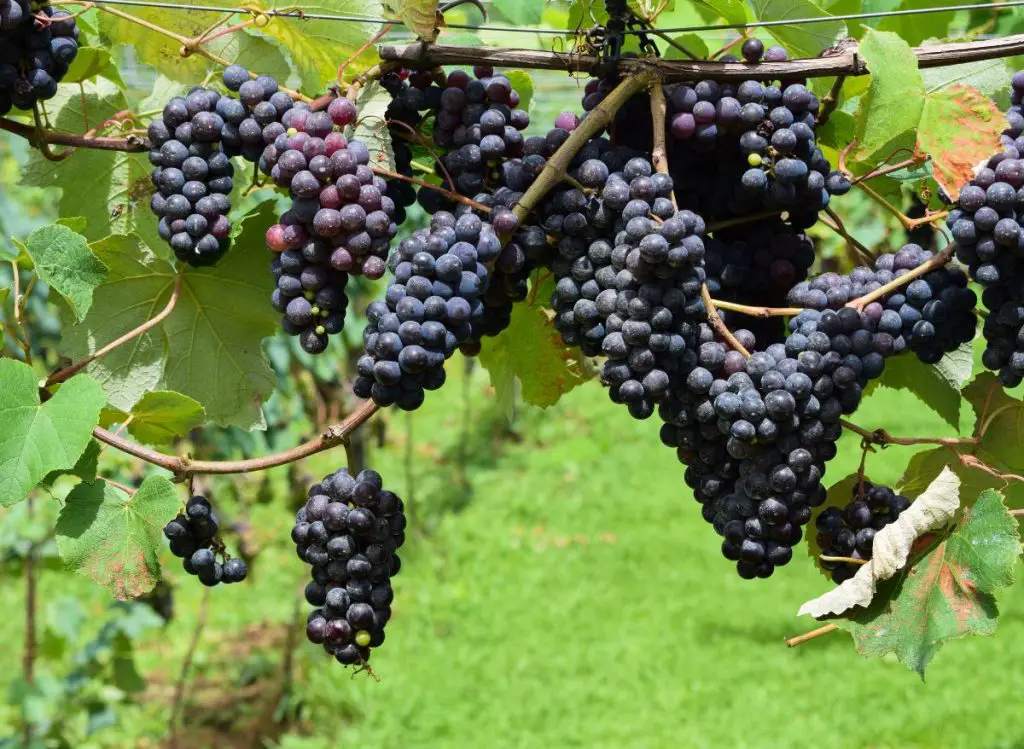
6- Velvet Bean (Mucuna Pruriens)
Velvet Bean, scientifically known as Mucuna pruriens, are very long climbing vines producing white or purple flowers and deep purple bean pods.
Velvet bean plants are not frost-hardy. It is recommended to plant velvet beans in spring and summer after all the chance of frost has passed with a soil temperature of at least 65 F. (18 C).
Velvet Beans are also good plants that can choke out blackberries and if you decide to plant velvet beans, ensure you plant the seeds to a depth of about 0.5 to 2 inches (1-5 cm.).
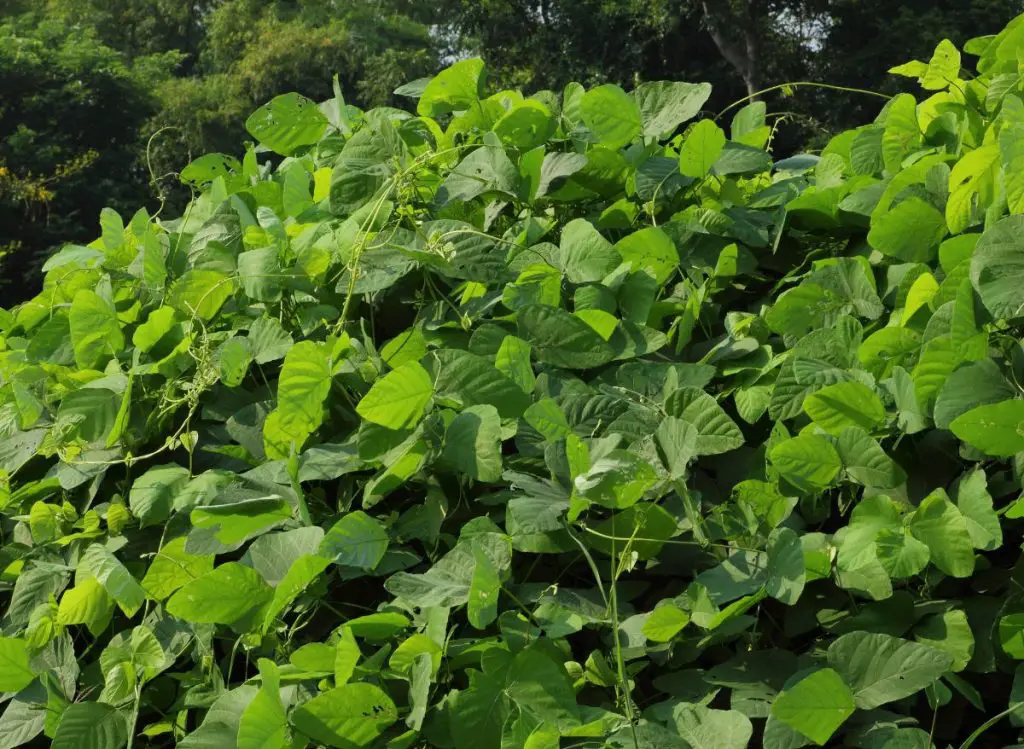
7- Artichokes (Cynara Cardunculus Var. Scolymus)
Artichoke plants (AKA Cynara scolymus) are herbaceous perennials of the Asteraceae family. They are short-lived perennials in warmer weather but usually grow as annuals in cooler regions.
Artichokes will compete with blackberries well for nutrients and water, and they are known to have an appetite for nitrogen. During the growing season, the artichoke must be watered about once weekly.
They thrive in cool, humid summers and mild winters and can reach heights of 3 to 5 feet. Even though Artichokes can tolerate shade, they grow best in full sun with sandy, well-drained, fertile soil and require plenty of sun and water and occasional protection from frost.
What makes Artichokes a good plant that will choke out blackberries is that it can grow 3 or 4 feet tall with a diameter of up to 6 feet, requiring plenty of space to grow (Source: University of California)
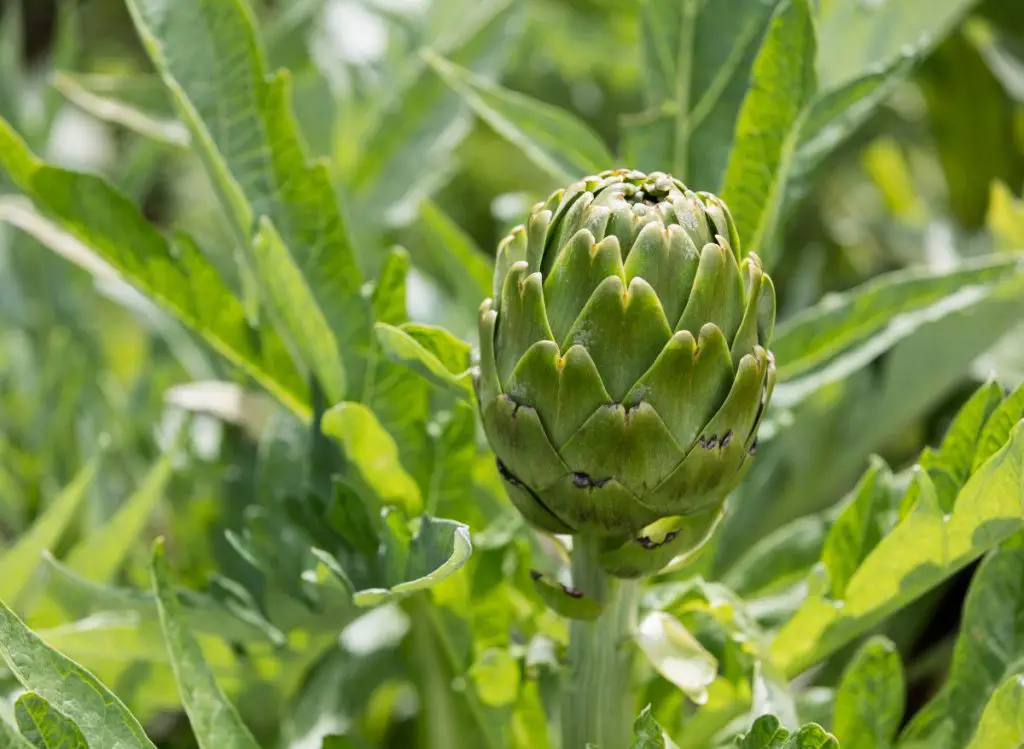
8- Canna Lily (Canna)
Cannas (also knowns as Canna spp.) are generally referred to as “bulbs,” even though they are not true bulbs. They multiply underneath the soil from a rhizome, an underground stem.
Although canna lily can tolerate partial shade, they require at least 4 hours of direct sun. Canna lily is a good plant to consider when looking for plants that choke out blackberries.
Canna lily does well in fertile, moist soil; if you decide to plant them, loosen the soil to a depth of about 12 to 13 inches as they require space to grow and don’t like to be crowded by other plants.
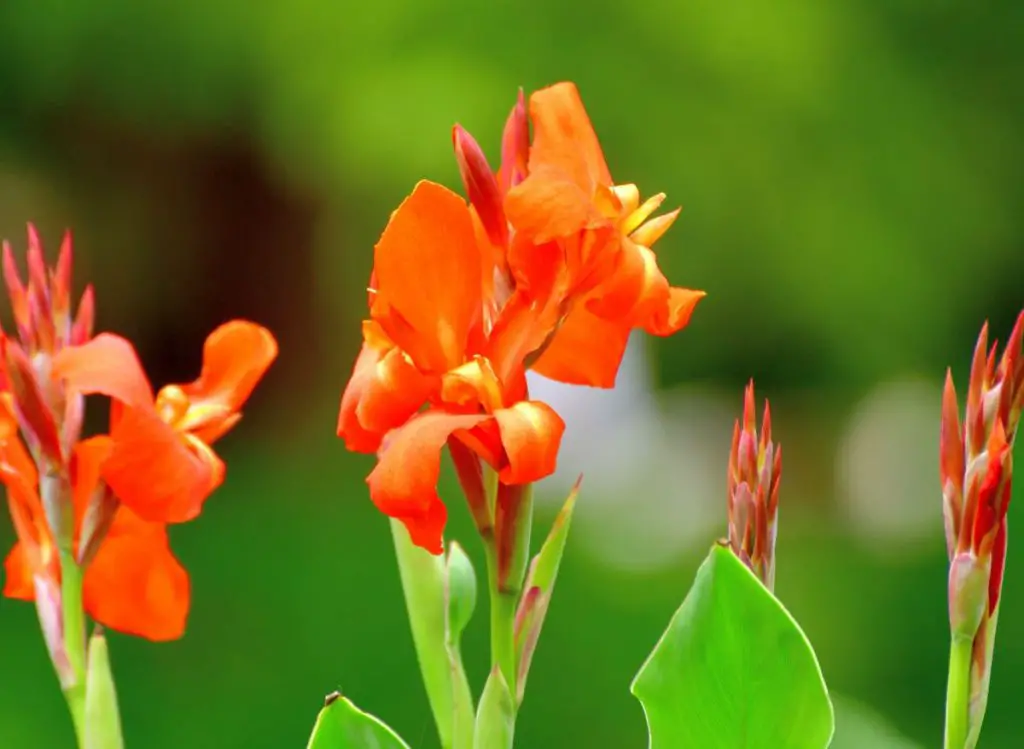
9- Thornless Blackberries (Rubus Ulmifolius)
Another plant to try is thornless blackberries, which are a good alternative, particularly if you like growing blackberries but dislike dealing with thorns.
Thornless blackberry produces some of the best-tasting fruit. Thornless blackberries have been domesticated, unlike blackberries with thorns, which usually grow wild in thick tangles producing more spines and spikes than sumptuous fruit. They are faster grown in the garden or containers.
The good news is that their fruit is more enjoyable and less harmful to harvest than wild blackberries with sweet and juicy thorns.
Like their cousin, thornless blackberries are pretty tolerant of a wide range of temperatures, and you can protect your plants by mulching them, particularly in colder climates (Source: University of California)
Best varieties of thornless blackberry to try on:
- Rubus ‘Navaho’ (USDA zones 5 to 9)
- R. ‘Apache’ (USDA zones 5 to 9)
- R. ‘Natchez’ (USDA zones 4 to 10)
- R. ‘Ouachita’ (USDA zones 5 to 9)
You might also enjoy reading: Best Herbicide For Blackberry Control and how they work?
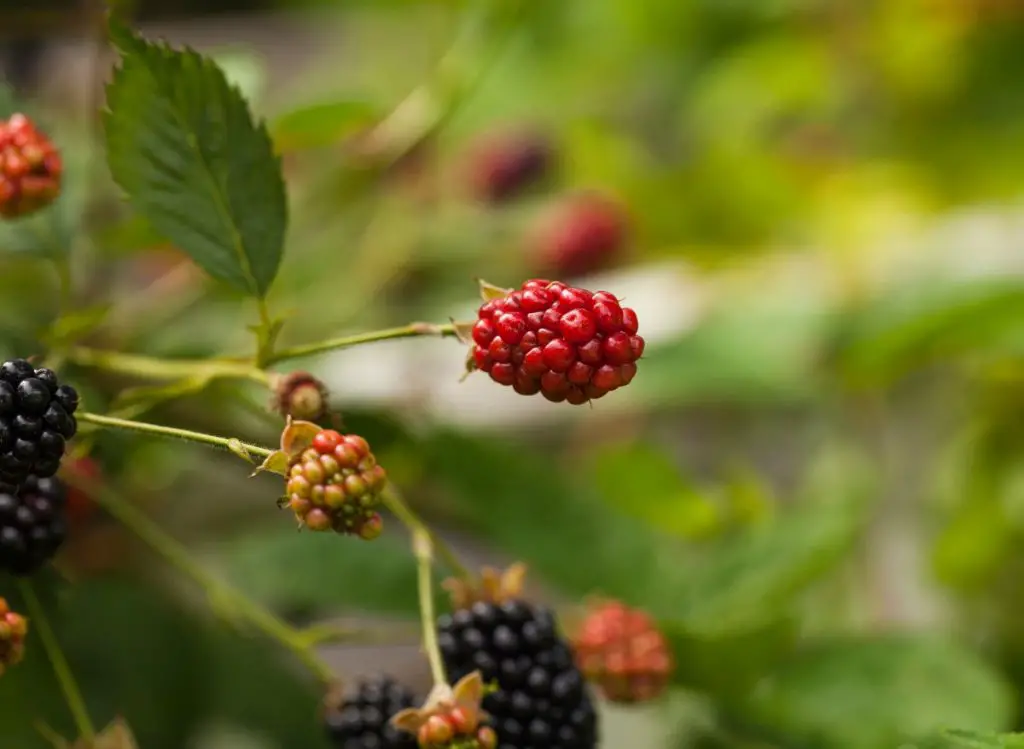
Wrapping Up
Try any plants on this list of plants that choke out blackberries; some of them are edible, and some are ornamental.
I suggest you pick one of two plants and use them to get rid of blackberry bushes. It might be a good idea to start with oregano as it is proven to be effective in eradicating blackberry bushes.
Also, if you have other plants that you have tried and found success in eliminating blackberry bushes, share them with us.


